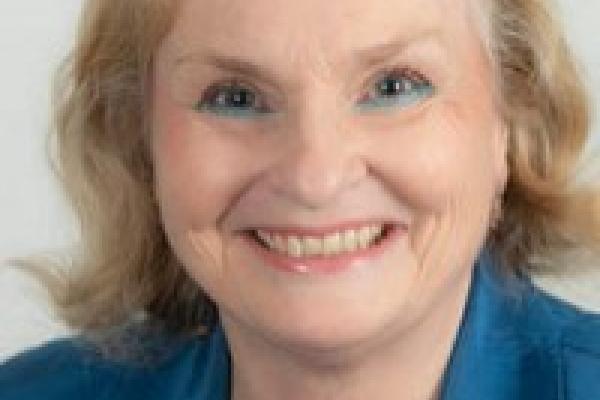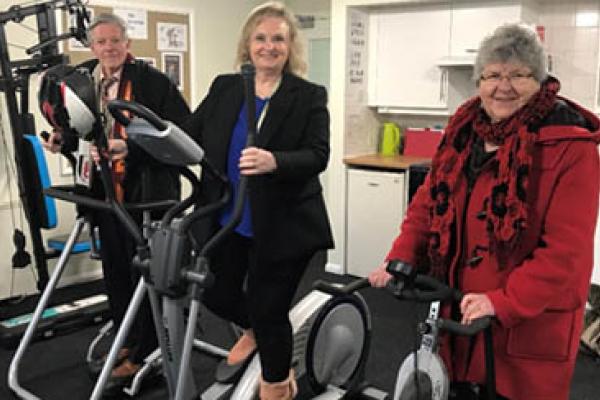“We recognise our responsibility as corporate parents and the need to make sure there is sufficient support in terms of housing, education, jobs and accommodation for care leavers.”
- Councillor Mrs Birch, Chair - Education, Skills and Growth Overview and Scrutiny Panel

Recommendations
Review the Housing Allocation Policy 2015 to include consideration of priority being awarded to care leavers where the authority has a Corporate Parenting role, particularly those who opt to ‘stay put’ with their foster family.
To be reviewed by 1 February 2021.
Review life skills and money management information to make sure consistency of provision and information available on the Local Offer Care Leavers website and consider frequency of visits to prepare care leavers for independence.
To be reviewed by 1 December 2021.
Revise the Staying Put Policy using plain English. Develop an easy-read version with foster carers and care leavers and consider extending the 3-month time limit when a care leaver can return to their foster family.
To be reviewed by 1 December 2020 with any identified changes to policy to be implemented by 1 February 2021.
Review the joint protocol between Children’s Social Care and Housing Team for assessing and meeting the needs of homeless young people.
To be reviewed and any policy changes implemented within agreed timeframes with the housing team, no later than 1 February 2021.
Enable care leavers’ achievements to be acknowledged and give them the opportunity to participate by replicating the offer to Children Looked After.
To be reviewed by 1 February 2021.
Good practice
The panel recognised the good work already being undertaken to support care leavers.
Specifically, they were pleased to see the council was prioritising a broader and more comprehensive offer of apprenticeships in the borough and aiming to make sure they were sustainable for the student financially.
In addition, the panel were pleased to note the development of a bespoke partnership with the University of Portsmouth to encourage take up and completion of higher education courses and agreed similar partnerships with other higher education institutions should be created.
Leaving Care Service
The Leaving Care Service provides support to young people at various stages of their transition to independent living:
- eligible care leavers are aged 16 or 17, are currently Children Looked After and have been looked after for at least 13 weeks since their 14th birthday
- former relevant care leavers are aged 18 to 21, are not Children Looked After and have previously been looked after for at least 13 weeks since their 14th birthday - they may be aged 21 or over and still getting support with education or training for as long as the education or training continues
In March 2019 the care leavers in Bracknell Forest were:
Eligible care leavers
38 clients
100% in suitable accommodation
85% in education, employment, training
100% pathway plan reviews within timescales
Former relevant care leavers
58clients
93% in suitable accommodation
60% in education, training and employment
97% pathway plan reviews within timescales
Review findings
“Going from a teen to an adult is tricky at the best of times and we appreciate there are significant issues for those who have not always had a stable home environment.” - Cllr Mrs Birch
Support that exists in social care
The Pathway Plan was co-produced with care leavers.
The team was well thought of internally and externally. This was evidenced during Bracknell’s Ofsted inspection in 2017 and by Mark Griddle, a national advisor for care leavers, who had visited to capture good practice.
The care leaving team had also been asked to train 30 managers at Sheffield City Council on how to complete a pathway plan and the Care Leavers Team Manager had been part of a peer review for care leavers at Hampshire County Council and Kent County Council, which had provided an opportunity to share good practice.
Co-location with housing, education and social care staff had enabled more joined up working.
Personal Advisers worked hard to build relationships with care leavers but acknowledged work could begin earlier, especially involvement to discuss education and housing options.
Four care leavers were currently taking advantage of the ‘Staying Put Policy’ 2015. The council wanted to increase the number of care leavers ‘staying put’. Issues identified with the ‘Staying Put Policy’ included care leavers only having 3 months to find out if they could successfully live alone and remuneration for care leavers and foster carers being complex to understand.
A care leaver was being appointed to Bracknell’s Corporate Parenting Board, but officers acknowledged there was more to do in terms of engaging care leavers in developing policies and service provision as well as celebrating their successes in life.
Available housing and education support
Pathway Plans were formulated before a care leaver turned 18 and all care leavers had a virtual Personal Education Plan in place until their 18th birthday.
There were a range of apprenticeships offered but take-up was low. In response, officers had begun working with partners such as Elevate, to develop a broader and more comprehensive offer in the borough. The Panel recognised this was already being developed.
The number of care leavers staying in education and completing a university level course were also low. The Virtual School Deputy Head had recently been appointed and brought expertise of working with universities and businesses which councillors agreed would help to address this issue.
Officers had a strong partnership with Elevate locally who employed a dedicated Personal Advisor offering independent advice and guidance for those with an education, health and care plan at 16 plus and to care leavers.
The Housing Allocation Policy 2015 was due for renewal. Councillors thought the current policy was not equitable as care leavers living in supported accommodation for 2 years would be classed as category B when ‘moving on’ unlike care leavers taking advantage of the ‘Staying Put Policy’.
A new contract monitoring framework, based on outcomes, would be in place across housing and the People Directorate Commissioning Team from April 2020.
A variety of accommodation is available but the majority of care leavers were offered accommodation at one of 2 bespoke residences. These are owned by the council but support is provided by Look Ahead.
Holly House
35flats
Rainforest Walk
26flats
What we saw at Rainforest Walk and Holly House
Councillors were given a tour of both and admired the refurbishment, particularly at Holly House which had received numerous improvements including a new boiler system, windows, roof and gym. Residents had been involved in choosing the paint colour at Rainforest Walk and councillors had an opportunity to view an empty flat. Each new resident was given a new mattress. Concierge ‘waking’ staff were present during night shifts.

Residents were aged 18 to 24 years of age. Both types of accommodation accepted young people from the age of 16 but this was rare and special conditions were made to make sure of their safety.
Residents could stay in this type of supported accommodation for a maximum of 2 years. However, some ex-residents occasionally called back for advice, such as for help to complete a benefits form.
Professionals held a meeting each month to try and anticipate which young people might need a flat and when, which councillors considered good practice.
Look Ahead staff signposted residents to other services as necessary, for example they helped them to register at local GP surgeries, although it had proved hard to link into the Community Mental Health Team (CMHT).
Neither accommodate babies or children. If a girl became pregnant whilst residing at either Rainbow Walk or Holly House she would be supported to find alternative accommodation.
What care leavers said about support they receive
Care leavers said the leaving care team were clear about what to use the money for – bought a tumble dryer for example. Councillors asked if advice from the team had included consideration of warranties and he said it did.
One care leaver said they would like to move out to somewhere quieter and this was being discussed with their personal advisor.
The council helped one care leaver by giving him £60 towards travel costs which enabled him to compete at a high level in his chosen sport.
One care leaver who lived independently and attended a college outside Bracknell said his Personal Advisor travelled to meet with him every 6 weeks. He gave examples why this was important to him such as when an outside agency was meant to support him in managing his money but did not turn up to a number of meetings. The Personal Advisor helped him organise alternative arrangements.
Two care leavers said a lot of planning with their Personal Advisor had taken place from the age of 16 to prepare them for adulthood but it still felt like it ‘came up quickly’.
An issue for one care leaver had been finding out from adult social care and housing teams who was responsible for paying rent. He did admit there were
“Some issues on my side. I found it hard to find somewhere to move to. It would have been easier if I’d found somewhere quicker.”
One care leaver said her transition to supported accommodation was too quick.
“When moving, I needed a proper chat. A ‘welcome to the real world’ chat. Say what’s going to be different in adults and between different types of housing so if I had to pay water rates or not at each place. I never knew I had to pay water rates where I am now.”
Councillors thought there was a need for clearer and more accessible advice on money management and life skills, particularly when they first moved into supported or independent accommodation.
All 3 care leavers said they had received help from social worker with one care leaver calling his relationship with his social worker ‘really good” and ‘quite a bit of planning’ had gone into his transition to Adult Social Care.
Access to local transport was an issue for one care leaver.
Care leavers said it was helpful Council Tax payments were waived.
“The most insightful session was when we spoke to 3 care leavers about their experience of leaving care and what they think the local authority did well. Their honesty was humbling, and we greatly appreciated their views on what the local authority could do better in the future.” - Cllr Brossard
Contributors to this review
| Name | Job role |
|---|---|
| Councillor Mrs Birch | Councillor |
| Councillor Michael Brossard | Councillor |
| Councillor Moira Gaw | Councillor |
| Councillor Michael Gbadebo | Councillor |
| Councillor Mary Temperton | Councillor |
| Clare Glennerster | Life Chances Team Manager |
| Peter Hodges | Head of Services: Life Chances |
| Sonia Johnson | Assistant Director: Children’s Social Care |
| Sarah Gee | Assistant Director: Early Help and Communities |
| Rachel Morgan | Assistant Director: Education and Learning |
| Kashif Nawaz | Head of Children’s Support Services |
| Nikki Edwards | Executive Director: People |
| Councillor Dr Barnard | Executive Member for Children, Young People and Learning |
| Louise Connelly | Governance and Scrutiny Co-ordinator |
| Bracknell Forest Care Leavers |